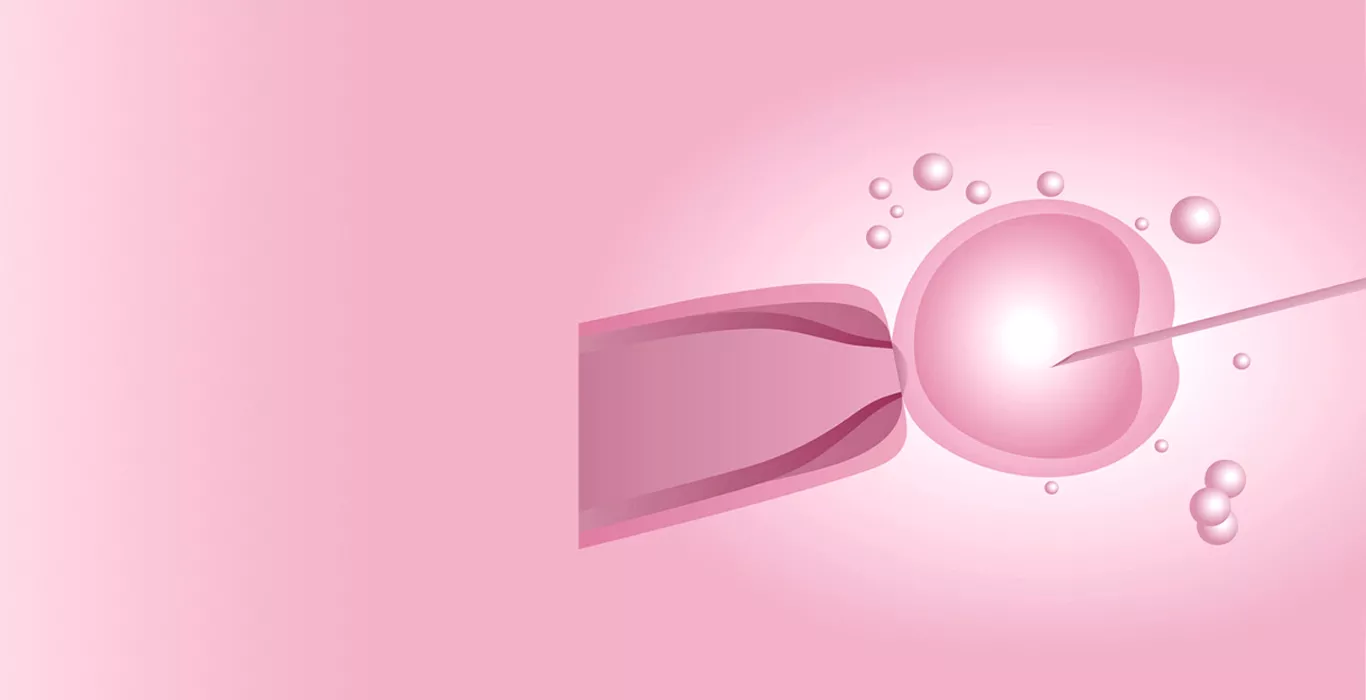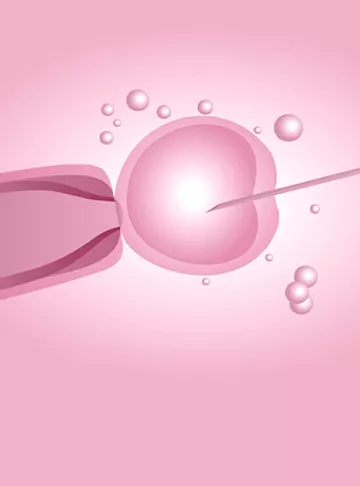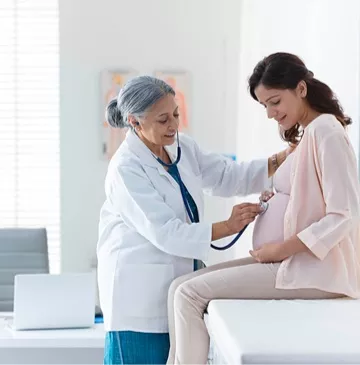Main navigation
- Infertility Treatment
- IVF Centers
- About Infertility
- Resources
- About us
- CSR
- Contact us


DONOR EGG SUCCESS RATES
What is the Success rate of IVF with egg donation?
When we talk about reproductive success, we are talking about births, not just pregnancy. However, most often, the success percentages of fertility treatments are measured by pregnancy.
A young woman would have the same or better success rates in self cycle compared to donor cycle. But for older women or young women with low egg reserve, it may be true that donor cycles have better success rates because, as we know, donor eggs come from young and healthy women with a good ovarian reserve.
When a woman uses egg donation, the technique offered to her is in vitro fertilization (IVF), whether it is conventional IVF or the more sophisticated technique called ICSI (intracytoplasmic sperm injection).
Success rate by age of patient-
While the average pregnancy rate achieved for an IVF cycle with the patient's eggs is around 35-43%, the rate can increase to approximately 55-63% success per IVF cycle with egg donation.
The variations depend on the receptivity of the uterus. There is evidence that implantation and pregnancy rates are lower in women aged 45-50 than in younger women. At the same time, the rate of miscarriage increases significantly from the age of 45.
On average, the Donor egg IVF success rates (pregnancy rates) are 69%* for patients under 45, while it still reaches 63%* when the recipient is 45-50 years old.
It is proven that the transfer of a blastocyst on Day 5 (5 days after fertilization) allows patients to achieve better pregnancy rates compared to the transfer of an embryo on Day 3 when we talk about Donor egg success rates.
We propose the birth rates by transfer of fresh embryos on Day 5, according to the age of the recipient below:
- Under 35: 69%*
- Between 35 and 37 years: 52.7%*
- Between 38 and 40 years: 52%*
- Between 41 and 42 years: 37%*
The chances of success increases with increase in number of IVF attempts with egg donation. In general, most women become pregnant after a maximum of 3 or 4 IVF-Egg donation attempts.
Why can IVF with Egg donation fail?
Despite the fact that Donor egg IVF success rates are high, the goal is not always achieved. Sometimes the embryos fail to implant, or miscarriage occurs. This can happen for different reasons:
- Uterine alterations: Polyps, myomas, endometriosis, intrauterine adhesions (Asherman's syndrome) and septal uterus, among others, which can prevent or make implantation difficult. Surgery would be required before attempting any ART treatment.
- Immunological alterations: The immune system must function properly for the embryo to implant and develop. The maternal body must accept the embryo.
- Alterations in blood clotting (Trombophilia): Correct coagulation is necessary to increase the chances of implantation and progression of the embryo.
- Genetic causes: Sperm may contain a genetic alteration that prevents the embryo from growing.
- Poor quality of embryos: Sperm may be of lower quality, which has repercussions on the embryo obtained. It is also possible, although rare, that the donor oocytes do not have sufficient quality. In this case, it would be necessary to change donors.
Apart from age, the success of IVF treatments with donor eggs also depends on other factors such as endometrial thickness and appearance, the cause and duration of infertility, and the protocol and hormonal treatment for ovarian stimulation used.
In order to determine the reason why the treatment may fail, the specialist must analyse all variations in the process. This could be a matter of simply changing the method of stimulation or the treatment, if it is the response to the treatment that is not appropriate. This will help in improving the Donor egg success rates.
Pregnancy Calculator Tools for Confident and Stress-Free Pregnancy Planning
Get quick understanding of your fertility cycle and accordingly make a schedule to track it


Couldn't find what you were looking for? Connect with us now!
IVF Centres in Popular Cities
- IVF Centre in Gachibowli
- IVF Centre in Chandauli
- IVF Centre in Phulwari Sharif
- IVF Centre in Jaipur
- IVF Centre in Mumbai
- IVF Centre in Delhi
- IVF Centre in Bangalore
- IVF Centre in Hyderabad
- IVF Centre in Ghaziabad
- IVF Centre in Udaipur
- IVF Centre in Patel Nagar
- IVF Centre in Lucknow
- IVF Centre in Patna
- IVF Centre in Pune
- IVF Centre in Guwahati
- IVF Centre in Indore
- IVF Centre in Chennai
- IVF Centre in Agra
- IVF Centre in Ahmedabad
- IVF Centre in Bhopal
- IVF Centre in Kolkata
- IVF Centre in Nagpur
- IVF Centre in Ludhiana
IVF Cost in Popular Cities
- IVF Cost in Delhi
- IVF Cost in Mumbai
- IVF Cost in Bangalore
- IVF Cost in Hyderabad
- IVF Cost in Pune
- IVF Cost in Kolkata
- IVF Cost in Lucknow
- IVF Cost in Chennai
- IVF Cost in Ahmedabad
- IVF Cost in Guwahati
- IVF Cost in Gurgaon
- IVF Cost in Jaipur
- IVF Cost in Bhopal
- IVF Cost in Indore
- IVF Cost in Ludhiana
- IVF Cost in Noida
- IVF Cost in Chandigarh
- IVF Cost in Patna
- IVF Cost in Nagpur
- IVF Cost in Ranchi
- IVF Cost in Surat
- IVF Cost in Bhubaneswar
- IVF Cost in Dehradun
- IVF Cost in Kanpur
- IVF Cost in Thane
- IVF Cost in Varanasi
- IVF Cost in Jammu
- IVF Cost in Mysore
- IVF Cost in Siliguri
- IVF Cost in Meerut
- IVF Cost in Vadodara
- IVF Cost in Raipur
- IVF Cost in Gorakhpur
- IVF Cost in Faridabad
IVF Doctors in Popular Cities
- IVF Doctor in Delhi
- IVF Doctor in Bangalore
- IVF Doctor in Chennai
- IVF Doctor in Mumbai
- IVF Doctor in Hyderabad
- IVF Doctor in Lucknow
- IVF Doctor in Gurgaon
- IVF Doctor in Kolkata
- IVF Doctor in Ahmedabad
- IVF Doctor in Pune
- IVF Doctor in Chandigarh
- IVF Doctor in Guwahati
- IVF Doctor in Noida
- IVF Doctor in Jaipur










